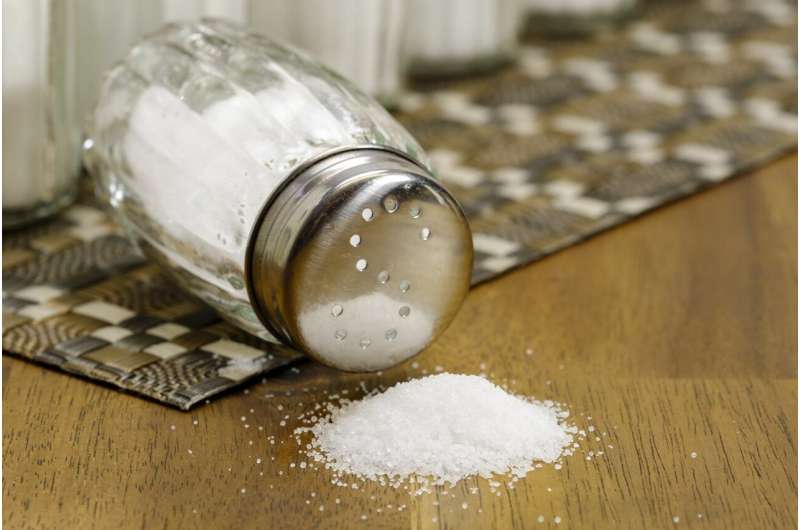This article has been reviewed according to Science X's editorial process and policies. Editors have highlighted the following attributes while ensuring the content's credibility:
fact-checked
peer-reviewed publication
trusted source
proofread
Study finds that changes in daily salt intake may explain eczema flares

A high sodium diet may increase the risk of eczema, according to researchers at UC San Francisco (UCSF), who found that eating just one extra gram of sodium per day—the amount in a Big Mac—increases the likelihood of flares by 22%.
Eczema, also known as atopic dermatitis, is a chronic disease that causes dry, itchy skin. It's one of the most common skin conditions, affecting more than 31 million people in the U.S., and one in 10 people will develop it at some point.
It has become increasingly common in recent years, especially in industrialized countries, implicating environmental and lifestyle factors like diet.
Sodium, which most people consume in the form of salt, increases the risk of hypertension and heart disease. And scientists recently discovered that sodium is stored in the skin, where it may play a role in the inflammation in eczema.
Limiting dietary sodium could be an easy way for eczema patients to manage their disease.
"Most Americans eat too much salt and can safely reduce their intake to recommended levels," said Katrina Abuabara, MD, associate professor of dermatology at UCSF and corresponding author of the study, which appears June 5, 2024, in JAMA Dermatology.
"Eczema flares can be difficult for patients to cope with," said Abuabara, who is also associate adjunct professor of epidemiology at the UC Berkeley School of Public Health, "especially when they are unable to anticipate them and don't have recommendations on what they can do to avoid them."
For their cross-sectional study, the researchers analyzed data from more than 215,000 people between 30 and 70 years old from the UK Biobank, which includes urine samples and electronic medical records.
They could tell how much sodium each person was eating from urine samples; and they could see whether people had a diagnosis of atopic dermatitis, as well as the severity, from prescription codes.
They found that each additional gram of sodium excreted in urine over 24 hours was associated with 11% higher odds of an eczema diagnosis; 16% higher odds of having an active case; and 11% higher odds of increased severity.
Then, they looked at 13,000 U.S. adults in the National Health and Nutrition Examination Survey and found that eating just one additional gram a day of sodium—about half a teaspoon of table salt—was associated with 22% higher odds that someone would have an active case of eczema.
More information: JAMA Dermatology (2024). jamanetwork.com/journals/jamad … madermatol.2024.1544





















